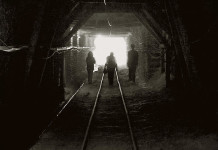
[miningmx.com] – AS one round of wage negotiations in the platinum industry nears its conclusion, another kicks off.
That’s the challenge facing Royal Bafokeng Platinum (RBPlat) which has started talks with the National Union of Mineworkers (NUM) ahead of renewing its three year 2011 wage deal.
Martin Prinsloo, CFO of RBPlat, is understandably reluctant to say how NUM is positioning itself given that the union’s rival in the platinum sector, the abrasive Association of Mineworkers & Construction Union (AMCU), has pushed for enormous increases throughout an unprecedented four-and-a-half month strike; suffice to say, the situation is sensitive.
“We have commenced the process for wage negotiations. We’ve seen positive signs and there is a likelihood of a settlement,’ said Prinsloo. RBPlat, which owns the Bafokeng-Rasimone Platinum Mine Joint Venture (BRPM) with Anglo American Platinum (Amplats) in Rustenburg, agreed to pay its unions on a sliding scale basis taking into account inflation.
The way it worked is that basic pay increases are structured on a sliding scale over the three year period with “operational bargaining unit’ employees receiving 10%, 8% and 9% respectively.
Employees represented by the “supervisory bargaining unit’ got 8%, 7% and 7% respectively. However, should the consumer price index have reached 7% by March of the increase year, then the supervisory bargaining unit employees would get CPI plus 1%.
The arrangement is quite evolved and has created a good relationship between RBPlat and its unions of which the NUM is the dominant one with 60% to 70% representation of the BRPM’s total workforce, followed by UASA with 20% and “limited numbers’ of AMCU followers.
So too is a R2.8bn housing scheme unveiled by RBPlat in which it will contribute a total of R600m with the balance provided by a developmental funding entity, yet to be disclosed.
Prinsloo said the cost of the scheme was already budgeted in RBPlat’s last financial statements so there are no particular surprises from a capital cost perspective.
RBPlat will oversee the construction of 3,100 houses – 400 are already built in a pilot scheme – that removes the social risks of hostel accommodation and allows miners’ families to live together.
The housing scheme is also part of the wage deal with between 8% to 12% of the total package dedicated towards repaying the funding agency which will act like any bank providing a bond would: using the houses as its collateral.
“We decided it was important to look at this holistically and to have a good relationship with unions. There’s no silver bullet to good worker relations but the housing has several benefits to the business, especially from a social point of view,’ said Prinsloo.











